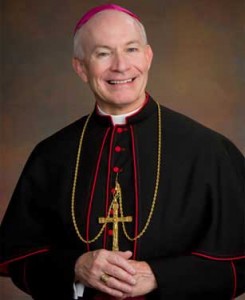USCCA20 Chapter 19 – The Anointing of the Sick and the Dying
Podcast: Play in new window | Download (Duration: 28:58 — 46.4MB) | Embed
Subscribe: Apple Podcasts | Spotify | Amazon Music | Android | Pandora | iHeartRadio | JioSaavn | Podchaser | Gaana | Podcast Index | Email | TuneIn | Deezer | Anghami | RSS | More
Archbishop Lucas offers insights on the US Catholic Catechism for Adults Chapter19:
When the Sacrament of Anointing of the Sick is given, the hoped-for effect is that, if it be God’s will, the person be physically healed of illness. But even if there is no physical healing, the primary effect of the Sacrament is a spiritual healing by which the sick person receives the Holy Spirit’s gift of peace and courage to deal with the difficulties that accompany serious illness or the frailty of old age. The Holy Spirit renews our faith in God and helps us withstand the temptations of the Evil One to be discouraged and despairing in the face of suffering and death. Also, a sick person’s sins are forgiven if he or she was not able to go to Confession prior to the celebration of the Sacrament of the Anointing of the Sick.
The Most Reverend George J. Lucas leads the Archdiocese of Omaha.
For other episodes in the visit our Archbishop George Lucas page
This programs is based on:
More information can be found here.
We wish to thank the USCCB for the permissions granted for use of relevant material used in this series.
Also we wish to thank Deacon Chuck and Susan Adams for their vocal talents in this episode.
[ezcc]




